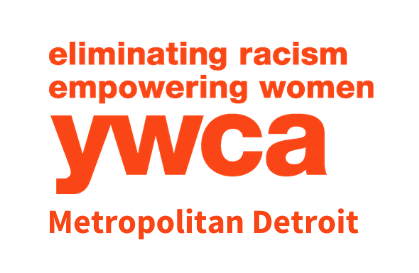YWCA USA – HISTORICALLY AT THE FOREFRONT
Beginning in New York City in the late 1850’s, women of all means and social conscience joined together to form the Young Women’s Christian Association (YWCA), to create better working conditions, assist with housing and aid in the safe travel of working women.
By the end of the 19th century, the Industrial Revolution had transformed the United States from agrarian to urban. American cities grew as a result of both foreign immigration and rural American migration. The depression of the 1880’s forced people off family farms and into cities to seek employment. For the first time, young American-born women joined their immigrant counterparts in the workforce in offices and factories, laboring for long hours for little pay and with no hope for advancement.
The national YWCA adopted the nation’s first interracial charter, years before the better-known civil rights struggles.
YWCA Detroit
In 1893, Grace Whitney Hoff, daughter of lumber and real estate baron David Whitney, and fifteen other ‘gentlewomen’, joined this growing national movement and founded the YWCA of Detroit. Their first program included providing a noon rest and ham sandwich (at a cost of 3 cents) for the new breed of working girls. Soon the Detroit YWCA provided programs for the improvement of the physical, social, intellectual and spiritual conditions of women in Detroit.
Following the lead of their Eastern counterparts, women began visiting railroad stations and boat docks to assist travelers, new arrivals and immigrants, beginning what is now known to Detroiters as the International Institute and Traveler’s Aid.
YWCA as Advocates
In 1900, the Detroit YWCA opened its first residence hall to provide safe, supervised, reasonably priced housing for working girls who were new to the city. By the mid-1920s the Detroit YWCA was advocating for better working conditions and against child labor in 96 different locations throughout the city.
Where Rosie Learned to Rivet
During the Depression, the YWCA’s in Detroit and across the U.S. were the first to teach typing classes to young women seeking employment. Like other businesses in Detroit, the YWCA geared up for World War II by teaching women technical skills such as mechanics, blueprint reading, aviation and nursing. Only fifty years before, a woman in the workforce had been scandalous. Now working women built and fueled the Arsenal of Democracy.
Camp Cavell was founded in 1914 and operated through the Detroit YWCA (this location was sold in October 2013 to a newly created Camp Conservancy). The flagship Downtown Branch was opened in 1929, the Northern Branch in Highland Park opened in 1931 and the Lucy Thurman Branch for ‘colored’ girls and women opened in 1933. (For many years, the Lucy Thurman Branch was the only place in Detroit where blacks and whites could meet and dine together in dignity.)
By the end of the War, Detroit’s International Branch had become the International Institute, and Traveler’s Aid spun off into an independent agency. Another well-known and respected organization first sponsored by the YWCA is the Detroit Business and Professional Women’s Club.
The postwar years brought the baby boom and suburban sprawl era. Four new branches (Macomb, Downriver, Oakland and Northwest) were established during the fifties. The Lucy Thurman Branch was consolidated with the Downtown Branch in 1963. The Oakland Branch burned in 1969 and was rebuilt one year later.
Immerging Needs Bring New Programs
In the 1970’s, women began to talk publicly about two previously taboo subjects: breast cancer and domestic violence. The YWCA responded with ENCORE, a support and exercise group for breast cancer surgery patients and YWCA Interim House (1979), a shelter for women and children survivors of domestic violence. This program currently ranks as one of the oldest and largest in Michigan and the only one in the City of Detroit. The National YWCA adopted its One Imperative, ‘to eliminate racism, wherever it exists and by any means possible.’
As the YWCA has been committed to the tabletop social issues of each era, the 1980’s, 1990’s and 2000’s brought about a renewed interest in activism in areas that included peace and nuclear disarmament, violence in all segments of our society, open housing, equal access to health care, teenage pregnancy, gun control, the Equal Rights Amendment, Equal Pay and families and child care.
The economic downturn brings changes; all YWCA facilities were sold and/or new separate entities were created. Many programs are now operating in outreach locations through newly created partnerships. This brought a renewed spirit to the YWCA of Metropolitan Detroit and we remain vigilant. The YWCA is on a Mission!

